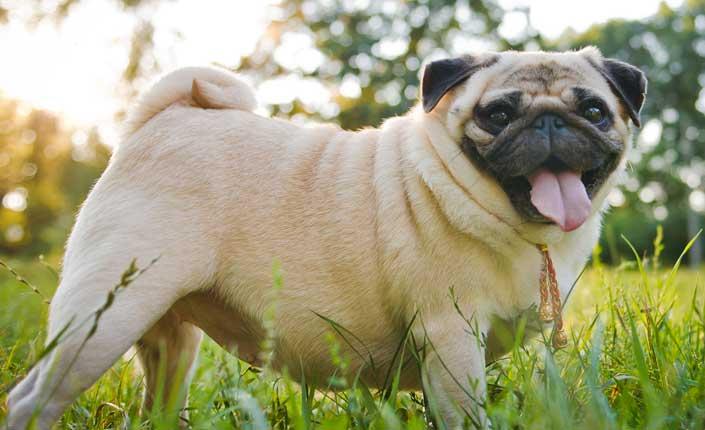
Preventing Obesity in Your Dog
Pet obesity is an ongoing and growing problem. Over 60% of Canadian pets are overweight, and only 18% of pet owners limit their pet’s food to the recommended amount. Obesity can lead to a number of health problems including diabetes; arthritis and joint pain; heart and liver disease; as well as gastrointestinal, asthma and respiratory issues, to name a few. To manage your dog’s weight, here are some things to keep in mind:
Treats don’t equal love – dogs don’t need treats to know you love them. Playing and spending time with them is what they love most, and it’s also a healthy pastime.
Listen to your vet – food and weight control is one of the most discussed topics at vet appointments. Also, consult with your vet before you begin any weight loss efforts with your dog. Follow the advice of your veterinarian to keep your pup healthy. They have your pet’s long-term health in mind!
Practice good feeding behavior – avoid overfeeding or making food available at all times. It’s also important to avoid giving your pup an excessive amount of treats or table scraps.
Let treats be treats, and make them healthy – treats are great in moderation for training purposes and table scraps can be shared sparingly at special occasions. But be mindful of the treats and scraps you are sharing with your dog. Swap butter-soaked veggies and sugary desserts for pureed, steamed vegetables and unseasoned meats.
Know the signs – it’s important to recognize the signs of obesity and unhealthy weight gain. For a healthy dog, you should be able to feel the outline of their ribs without an excess fat covering. Your dog’s waist should also be clearly visible when you look down at them from above.
Regular exercise – all pets need to engage in daily physical activities. Be sure to give your dog the opportunity to have a good long walk or run in the dog park. Chasing a ball or swimming are also great options to give them the physical activity they need to maintain a healthy weight.
Being active and engaged with your dog is part of the pet parenting fun, and maintaining a healthy weight is the best way to keep your dog healthy and strong for years to come. In fact, leaner dogs live up to 15% longer. So swap out those treats and show your pet some activity-based love!
NOTE: If you are concerned about your pet’s weight, consult with your veterinarian before beginning any weight loss plan.
